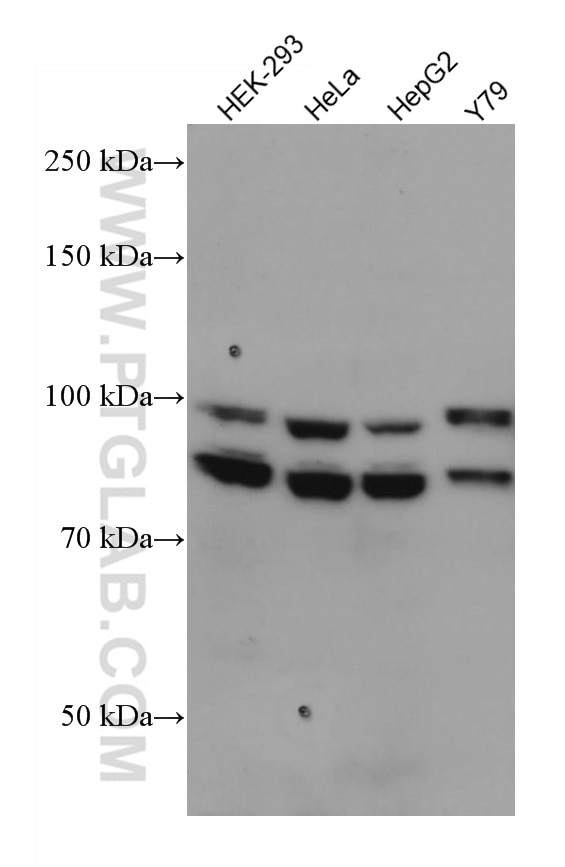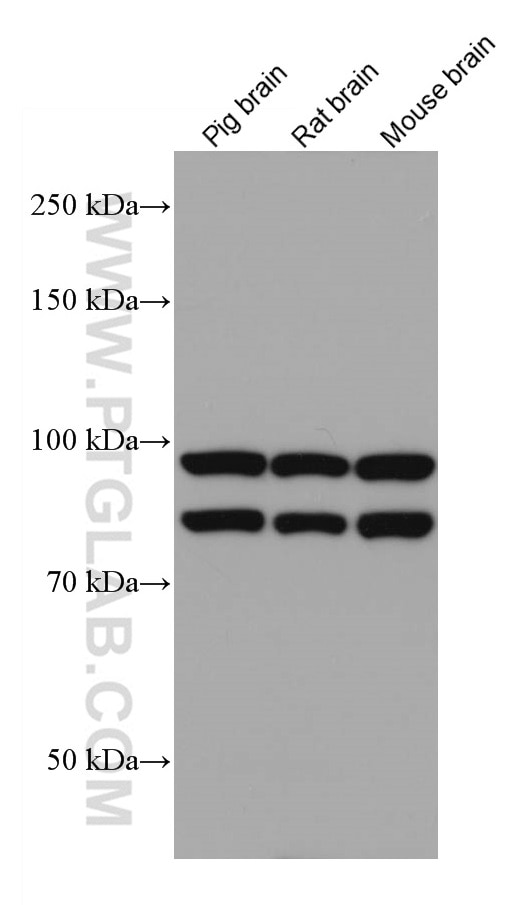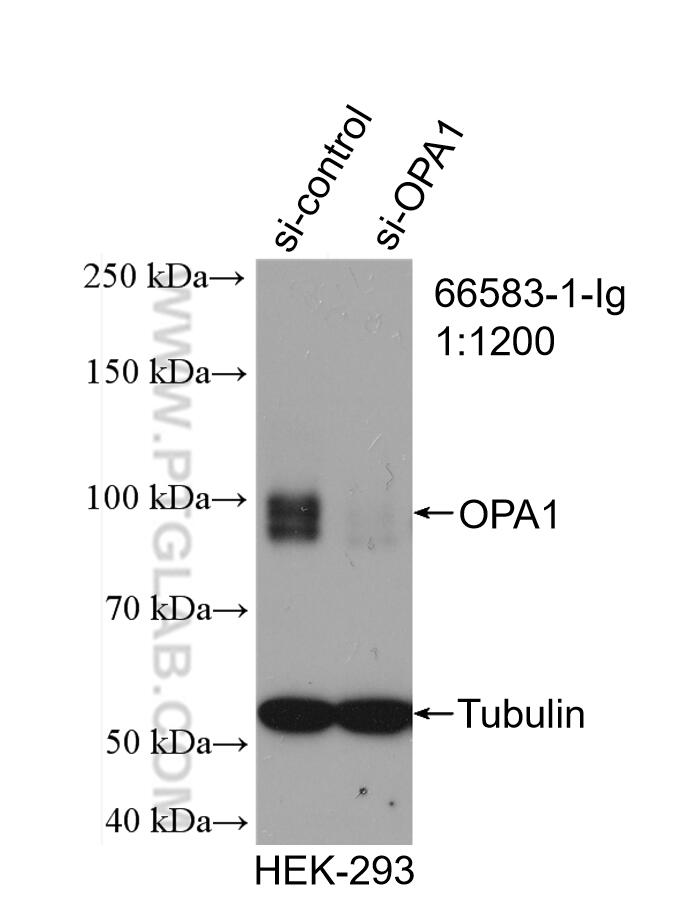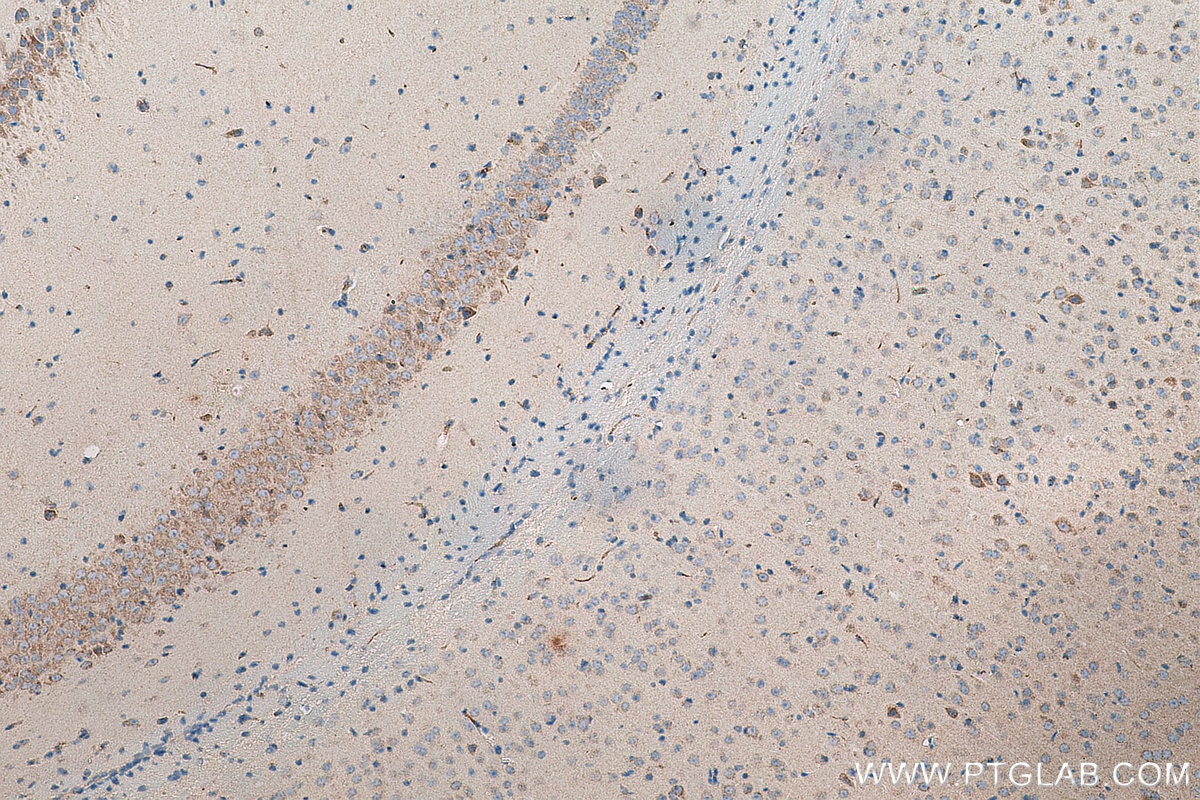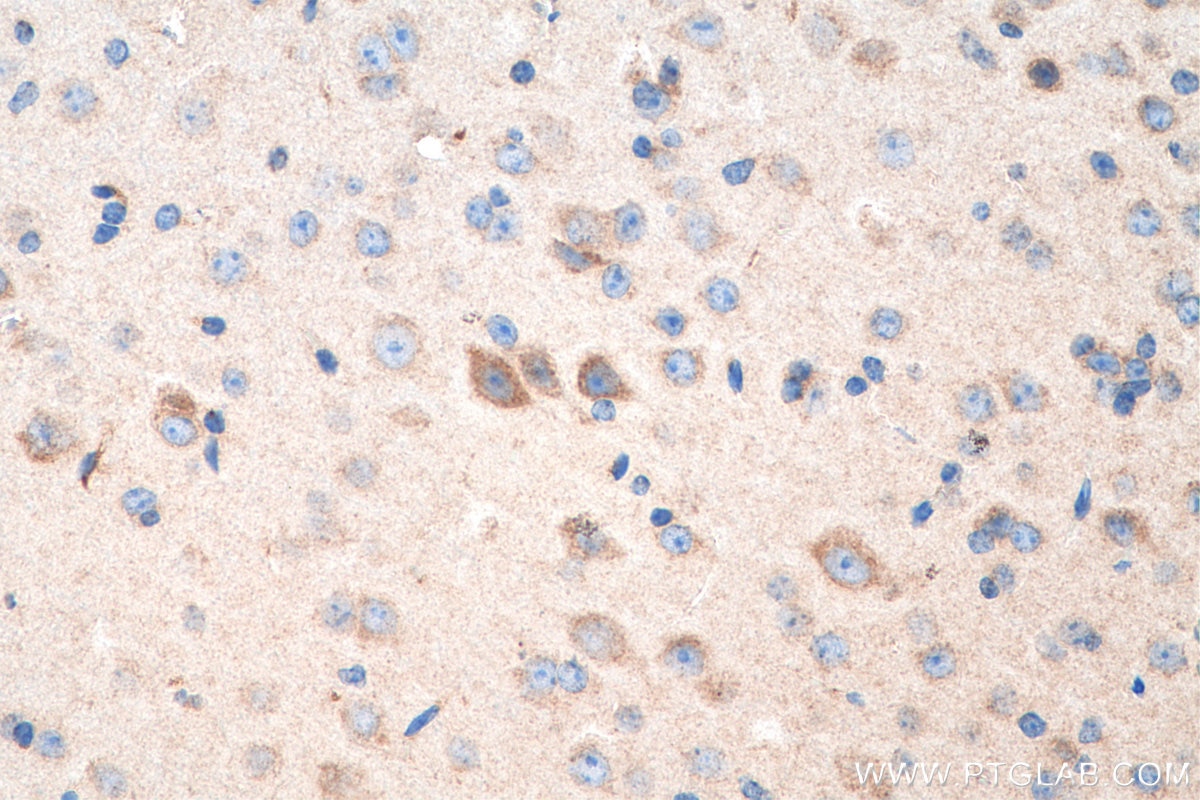- Phare
- Validé par KD/KO
Anticorps Monoclonal anti-OPA1
OPA1 Monoclonal Antibody for IHC, WB, ELISA
Hôte / Isotype
Mouse / IgG2b
Réactivité testée
Humain, porc, rat, souris et plus (1)
Applications
WB, IHC, IF, ELISA
Conjugaison
Non conjugué
CloneNo.
1B2D8
N° de cat : 66583-1-Ig
Synonymes
Galerie de données de validation
Applications testées
| Résultats positifs en WB | cellules HEK-293, cellules HeLa, cellules HepG2, cellules Y79, tissu cérébral de porc, tissu cérébral de rat, tissu cérébral de souris |
| Résultats positifs en IHC | tissu cérébral de souris, il est suggéré de démasquer l'antigène avec un tampon de TE buffer pH 9.0; (*) À défaut, 'le démasquage de l'antigène peut être 'effectué avec un tampon citrate pH 6,0. |
Dilution recommandée
| Application | Dilution |
|---|---|
| Western Blot (WB) | WB : 1:500-1:2000 |
| Immunohistochimie (IHC) | IHC : 1:400-1:1600 |
| It is recommended that this reagent should be titrated in each testing system to obtain optimal results. | |
| Sample-dependent, check data in validation data gallery | |
Applications publiées
| KD/KO | See 1 publications below |
| WB | See 13 publications below |
| IF | See 1 publications below |
Informations sur le produit
66583-1-Ig cible OPA1 dans les applications de WB, IHC, IF, ELISA et montre une réactivité avec des échantillons Humain, porc, rat, souris
| Réactivité | Humain, porc, rat, souris |
| Réactivité citée | rat, Humain, souris, fish |
| Hôte / Isotype | Mouse / IgG2b |
| Clonalité | Monoclonal |
| Type | Anticorps |
| Immunogène | OPA1 Protéine recombinante Ag26868 |
| Nom complet | optic atrophy 1 (autosomal dominant) |
| Masse moléculaire calculée | 960 aa, 112 kDa |
| Poids moléculaire observé | 100 kDa and 80-90 kDa |
| Numéro d’acquisition GenBank | BC075805 |
| Symbole du gène | OPA1 |
| Identification du gène (NCBI) | 4976 |
| Conjugaison | Non conjugué |
| Forme | Liquide |
| Méthode de purification | Purification par protéine A |
| Tampon de stockage | PBS avec azoture de sodium à 0,02 % et glycérol à 50 % pH 7,3 |
| Conditions de stockage | Stocker à -20°C. Stable pendant un an après l'expédition. L'aliquotage n'est pas nécessaire pour le stockage à -20oC Les 20ul contiennent 0,1% de BSA. |
Informations générales
OPA1 is a nuclear-encoded mitochondrial protein with similarity to dynamin-related GTPases. OPA1 localizes to the inner mitochondrial membrane and helps regulate mitochondrial stability and energy output. This protein also sequesters cytochrome c. OPA1 is associated with the inner membrane and protects cells from apoptosis by regulating inner membrane dynamics. Mutation of OPA1 causes the disease dominant optic atrophy, a degeneration of the retinal ganglion cells. OPA1 undergoes complex posttranscriptional regulation and posttranslational proteolysis. OPA1 is regulated by proteolytic cleavage, which degrades long OPA1 isoforms into short isoforms. The gene OPA1 can be cleaved into some chains with MW 100 kDa and 80-90 kDa.
Protocole
| Product Specific Protocols | |
|---|---|
| WB protocol for OPA1 antibody 66583-1-Ig | Download protocol |
| IHC protocol for OPA1 antibody 66583-1-Ig | Download protocol |
| Standard Protocols | |
|---|---|
| Click here to view our Standard Protocols |
Publications
| Species | Application | Title |
|---|---|---|
J Physiol Sci Cardioprotective responses to aerobic exercise-induced physiological hypertrophy in zebrafish heart | ||
Behav Brain Res Protective effect of exercise training against the progression of Alzheimer's disease in 3xTg-AD mice. | ||
Eur J Pharmacol Dihydromyricetin contributes to weight loss via pro-browning mediated by mitochondrial fission in white adipose | ||
Cell Death Dis Cadmium-induced apoptosis of Leydig cells is mediated by excessive mitochondrial fission and inhibition of mitophagy | ||
Aging (Albany NY) Jian-Pi-Yi-Shen decoction inhibits mitochondria-dependent granulosa cell apoptosis in a rat model of POF |
